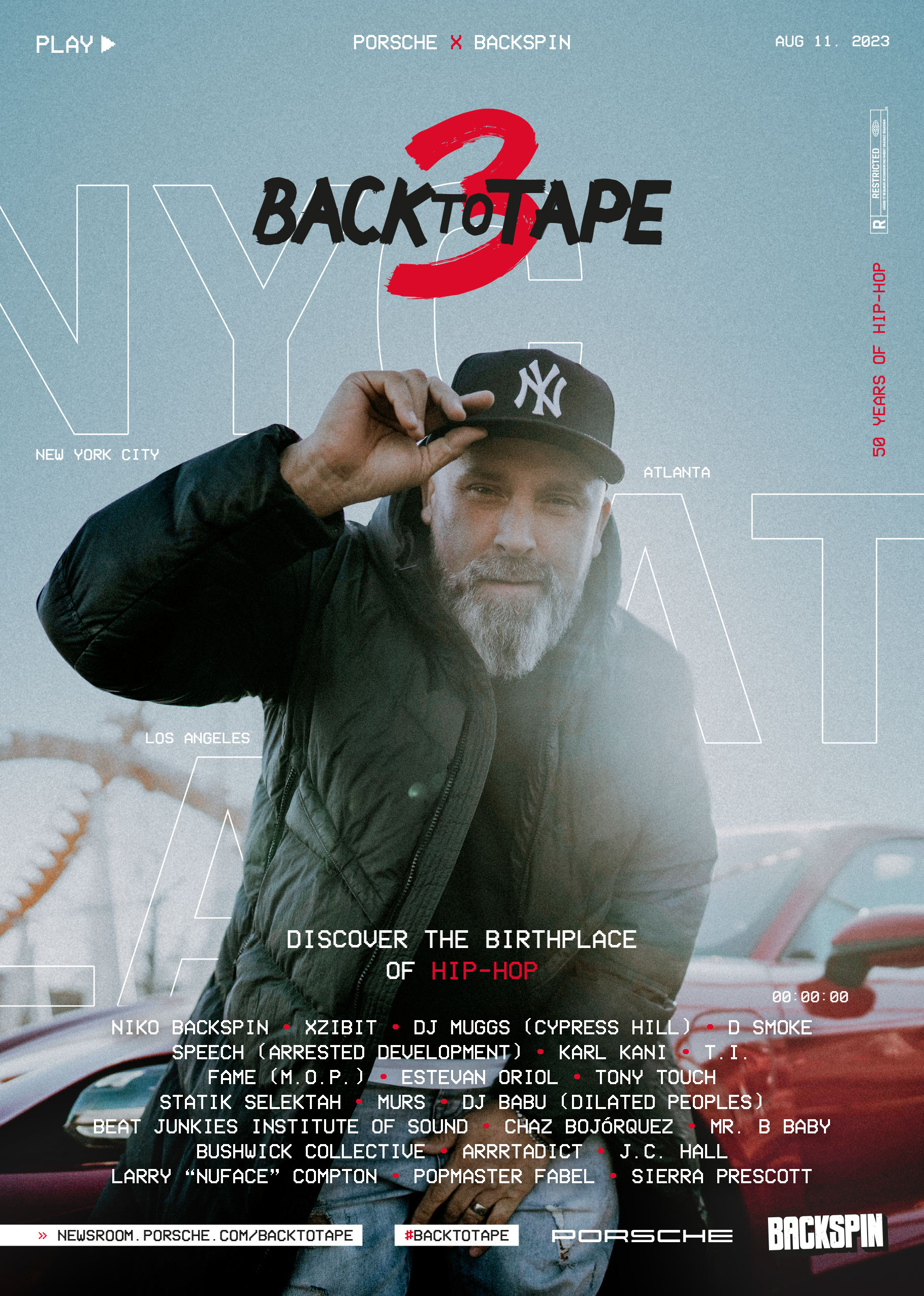On 11 August 1973, DJ Kool Herc hosted a party in the Bronx that would go down in history. With two turntables connected together, he created beats that friends accompanied with raps and acrobatic breakdancing. That New York evening 50 years ago is considered a key moment in the formation of the youth culture now known as hip-hop.
A journey documented in two hours of film
Half-a-century later, music journalist Niko Backspin has embarked on a journey through the US as part of Back to Tape 3, talking along the way to artists in New York, Los Angeles and Atlanta about their lives and influences on the culture. The result is an almost two-hour documentary that can now be viewed for free on YouTube (via the channel Backspin TV) and in the Porsche Newsroom.

In addition to the four hip-hop elements of breakdance, graffiti, rap and DJing, the documentary focuses on a value system characterised by respect, tolerance and creative self-realisation. Artists like Xzibit or DJ Muggs from Cypress Hill reveal how hip-hop helped them to break free from the barriers of their social backgrounds and to realise their dreams in a self-determined way. The social worker JC Hall follows the same approach with his Hip-Hop Therapy project, which features in the film. He uses the tools of hip-hop culture therapeutically to reintegrate disadvantaged youths from the Bronx district of New York into everyday school life, and to show them ways to shape their lives positively.
"Respect, tolerance and integration are values that the hip-hop movement has exemplified for 50 years now and it has therefore shaped several generations and decades in terms of language, music and fashion. But hip-hop is much more – it is a unifying system with common codes all over the world," says Niko Backspin. "The beauty is that there are so many ways to celebrate it all, too. With Back to Tape we're presenting the right stage for that."
Sebastian Rudolph, Vice President Communications, Sustainability and Politics at Porsche AG, adds: "The hip-hop movement connects people across national borders, languages and social backgrounds. It has done this sustainably for decades. Values such as tolerance, respect and diversity play an important role, and these are values with which Porsche fully identifies. This is why we are supporting Back to Tape again, for a third time."
To the origins of hip-hop culture in the USA
Since 2018, Backspin and Porsche have been jointly committed to giving space to the values of hip-hop as a youth culture. The first Back to Tape reported on the history of hip-hop in Germany. The cooperation was awarded numerous industry prizes, including the German Prize for Online Communication. Part two followed in 2020 and saw Niko Backspin travel in a Porsche to European cities such as Barcelona, Paris and London, to explore the culture beyond Germany's borders. In 2021, a 212-page culture and travel guide was published called ‘Hip-Hop Culture’, which was based on these road trips. It portrays 17 artists from Germany, the Netherlands, the UK, France, Spain and Denmark, all of whom have made a significant contribution to the development of a value-based hip-hop culture. Part three takes viewers to the US, and the origins of the movement.
While the content is being played out digitally via Instagram, YouTube and Spotify, the centre of the online storytelling is the Porsche Newsroom. Back to Tape 3 is available to view there now, at newsroom.porsche.de/backtotape. A special exhibition all about Porsche and hip-hop will also be on show at the Porsche Brand Store in Stuttgart until 18 August.

























